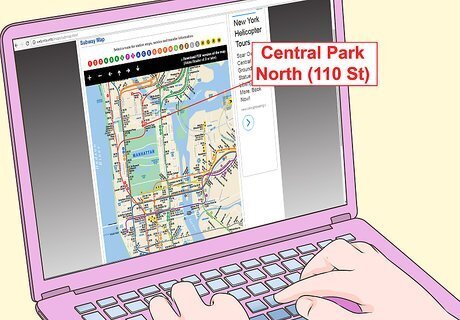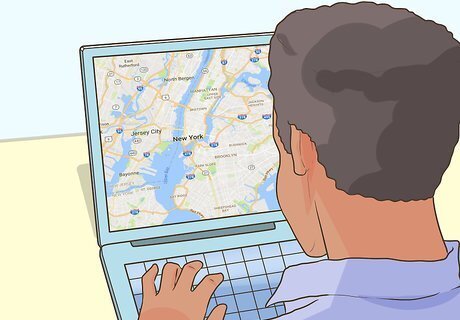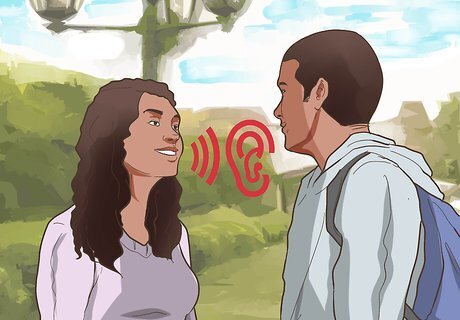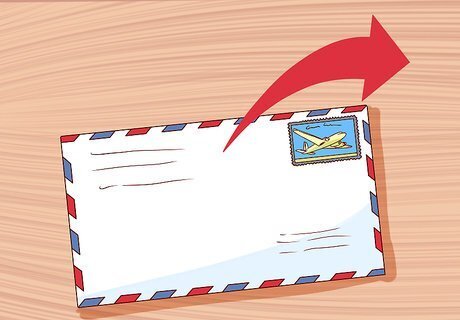
views
Designing Effective Leaflets

Pick your target audience. To make and distribute effective leaflets, remember who your audience is. A leaflet meant for a child looks differently than one meant for a 75 year old grandma. These groups have different interests and gather in different areas. Refine your message and strategies in order to appeal to your target audience.

Keep your leaflets small and simple. Smaller leaflets cost less and are less likely to be discarded. Give your audience the information they need without excess they won’t read. The larger the leaflet, the harder it will be for you to distribute. A leaflet that’s difficult for you to handle will also be difficult for readers to read and carry. Stick to powerful words in simple sentences.

Make your leaflet eye-catching. An effective leaflet typically has an eye-catching image or logo as well as a clear headline. Attractive color schemes draw attention. Bright-colored paper can help, as well as a bold, large-print headline. Snappy mottos or phrases stand out and cause people to remember your leaflet after reading it. For example, a headline that asks, “Need a local gardener?” explains the meaning of the leaflet very clearly. Gather leaflets in your area and study what makes them appealing. Find the design choices that draw your attention.

Include contact information. Relevant details may include a telephone number, an address, and business hours. Don’t forget to include expiration dates when advertising coupons or sales. A small map may also help visitors navigate confusing areas. Guide interested readers further towards your cause.
Creating Distribution Strategies

Figure out where to distribute your leaflets. Where does your target audience live, work, and shop? It’s important for you to know this so you know how to reach them. You wouldn’t want to go to the next city over to hand out leaflets for your new restaurant. Lifestyle messages, such as those about eating vegetarian, have broader reach but still need to find a receptive audience. Teenagers, for example, will be more likely to go vegetarian than an older person who has eaten meat for decades.

Plot a course for distribution. Before you go out, decide where you’re going to go. For an effective distribution plan, think of how far you need to walk or drive, when you need to get to a location, and how many leaflets you need to bring. A good strategy will save you time and money while spreading your message further. Use maps to plan out shorter routes and determine where customers will be. Keep notes on what locations and businesses are receptive to your advertisements.

Distribute leaflets at the proper time. When do you need to get the leaflet into a customer’s hands? If you’re advertising a holiday sale, the leaflets need to be distributed a few weeks before the holiday. Similarly, people will be more receptive at certain times. People entering or leaving an event are more likely to take a leaflet than people rushing to work. Keep in mind any events in the area. At a rock concert where teens gather, you will likely have some luck advertising a vegan restaurant. Advertising would be more difficult with an older audience set in their ways. Your audience may be available at night instead of the day. Bars and clubs can be gathering grounds for you to advertise restaurants or products relevant to people who may be in work during the day.

Repeat leaflet distribution weeks later. Repeat advertisements are easier to remember. Go back to your distribution locations a month or two later. Even if you deliver the same leaflet to the same people, you are likely to see improved results. Your message or business becomes more recognizable as you build connections.
Handing Leaflets to Customers

Research local distribution laws. Always note local laws before you start advertising. Private property is often closed off to you. Public sidewalks and universities are often safe distribution points. Make sure you are allowed to visit businesses, open mailboxes, or drop fliers at front doors. When you are asked to leave a non-public area, leave without a fight.

Dress appropriately for the area. Look like you belong by dressing like those around you. People will be more receptive to your message when you appear approachable. Focus audience attention on your message, not yourself. In an average area, you probably won’t want to wear ragged jeans. You wouldn’t advertise your restaurant on the street while wearing a suit and tie, either. Sometimes you may find a creative approach, such as a costume when advertising to children, to be beneficial. People outside the target group may be less likely to take your leaflet, however.

Come up with a sales pitch. Your sales pitch should be short but descriptive. You may say, “Would you like to learn about vegetarian eating?” or “Come eat homemade pizza at Primavera Pizza” as you hand out your leaflet. These messages describe your purpose without being offensive or forceful. Keep in mind that direct contact like this is an opportunity to answer questions and refer people to additional resources.

Be polite. Approach everyone with a smile. Do not hound people with your leaflets. Don’t get into any heated debates. When someone is rude, excuse yourself from conversation. Good manners will make people more likely to accept your leaflets.

Pick up dropped leaflets. Seeing discarded leaflets may make you feel bad, but leaving them on the street can be bad for your cause. Multiple discarded leaflets make it look like your logo or message has been ignored. Also, these fliers form unappealing litter.
Distributing Leaflets Creatively

Mail leaflets to homes. Leaflets distributed to homes are very likely to be seen. You can hire a company to send them through the mail. You may also be able to distribute them by hand into mailboxes, but make sure this is legal in your area. Fliers left on doors and porches are also noticeable and will be seen by homeowners. Unless you have a specific list of addresses to hit, this sort of distribution can take a lot of leaflets and work.

Place leaflets inside orders. Whether you wrap a package at your store or ship an order, there’s no easier way to advertise. Slip the leaflet inside the packaging. Since the recipient is already in contact with you, they are going to check out your leaflet. Coupons or catalogue advertisements in your leaflets work well here.

Include leaflets as publication inserts. Contact the publication manager to discuss including your leaflet between their pages. Pick a trade publication that represents your cause, such as a music magazine to advertise your band or venue. Many areas have regional publications that are useful for spreading your leaflet locally.

Display leaflets inside other businesses. Having good relationships with local business owners helps. Ask them to display your leaflet on their counters. Some places will have public advertising boards where you can hang your leaflet. Waiting rooms in medical offices are also opportunities for reaching unoccupied people. Businesses related to your cause are your best bet. For example, if you are advertising a healthy grocery store, a gym is likely to be receptive. You can offer to advertise for them in return.

Advertise at events. Local events, such as trade shows, are easy locations to get leaflets to large groups of people. The best opportunity is during an event that relates to your cause, such as advertising a craft store at a craft show. You can package leaflets inside small goodie bags or leave the leaflets out on display. You may also be able to sponsor an event yourself. As a sponsor, you will be given greater leeway in advertising and spreading leaflets. Call the event organizers to discuss advertising and sponsorship opportunities. Look for events anywhere in your area, such as through libraries, community centers, clubs, and other venues.



















Comments
0 comment